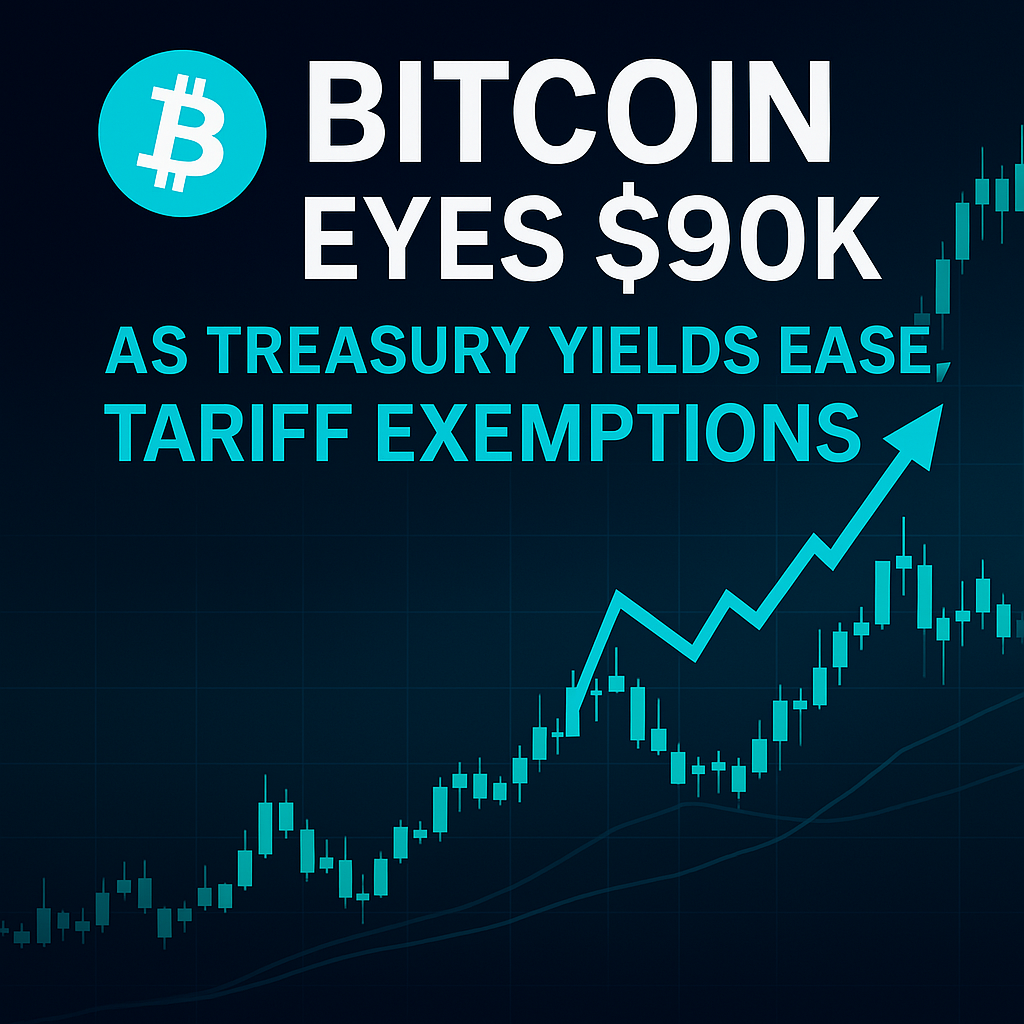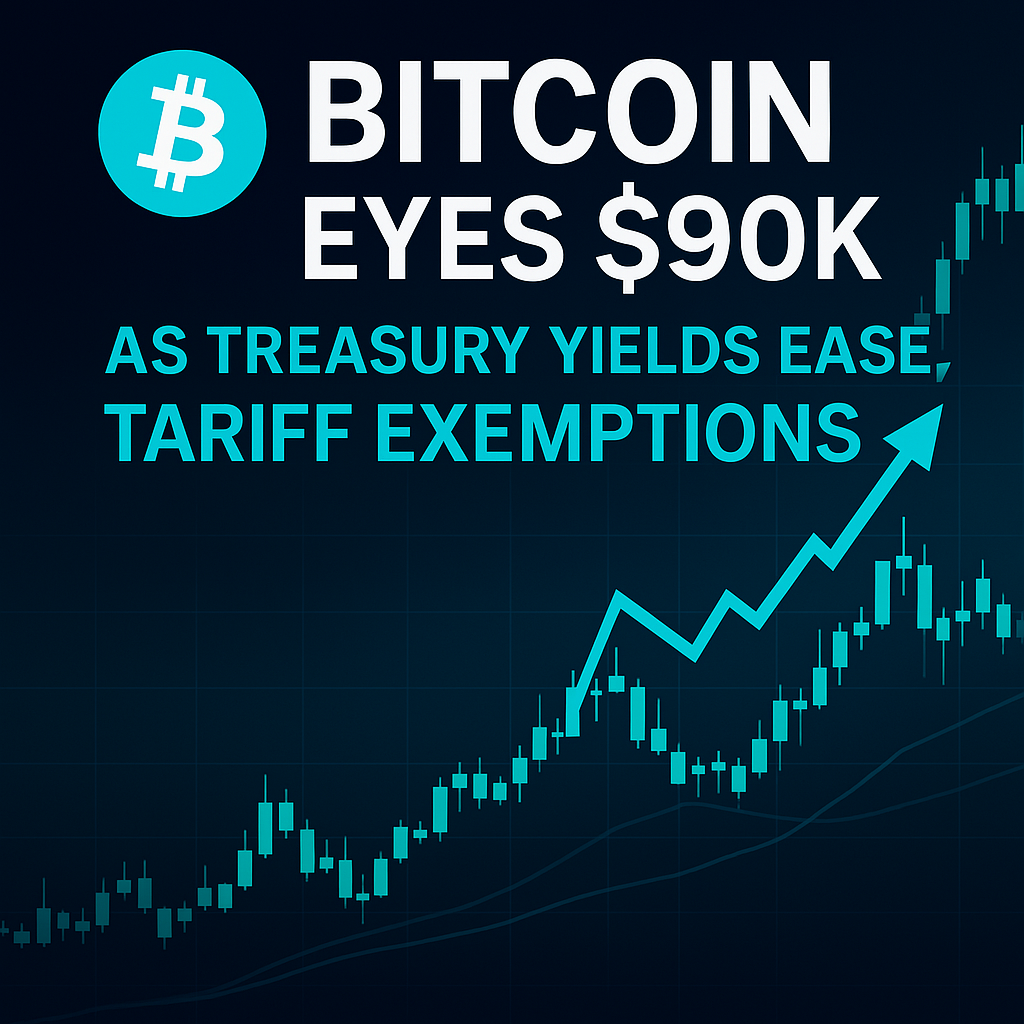
Bitcoin is setting its sights on the $90,000 mark as falling U.S. Treasury yields and fresh tariff exemptions from the Trump administration ignite renewed investor optimism. The flagship cryptocurrency wrapped up its strongest weekly performance since January, climbing 6.79% and signaling a potential bullish continuation — but is the rally sustainable?
📉 Falling Yields Boost BTC’s Appeal
On Monday, April 14, both 2-year and 10-year Treasury yields dipped significantly. The 10-year yield dropped by 8.2 basis points to 4.40%, while the 2-year yield fell to 3.88%. This yield decline coincided with Bitcoin’s impressive rally from $74,500 lows to a high of $86,100, marking a 15% surge between April 9–13.
The yield drop followed tariff exemptions on smartphones, semiconductors, and computers — a strategic move aimed at giving U.S. businesses more time to shift manufacturing back home. However, President Trump stated the exemptions are temporary, leaving room for uncertainty.
📈 Why Lower Yields Matter for Bitcoin
Lower Treasury yields reduce the attractiveness of fixed-income investments, often pushing capital into risk-on assets like Bitcoin. While that’s bullish for BTC in the short term, the “temporary” nature of these exemptions and continued trade tensions with China could lead to volatility spikes.
🔍 Key BTC Resistance Zones: $88K – $90K
Despite the rally, analysts caution that strong resistance lies ahead. Trading firm Material Indicators reported Bitcoin is currently holding above critical technical zones — the 50-week moving average and the quarterly open near $82,500.
However, BTC now faces a double wall of resistance between a key trendline and the 200-day moving average. Market liquidity at $88K and $92K may stall momentum before another leg higher.
Adding to the optimism, analyst Joao Wedson from Alphractal notes a narrowing gap between Bitcoin’s perpetual futures and spot prices on Binance — often a signal of an upcoming trend reversal to the upside.

